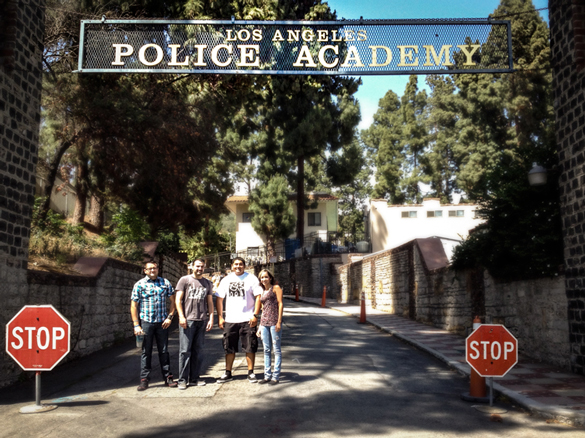FAQs
Q. What is the focus of the Administration of Justice Program?
A. The Administration of Justice Program focuses on the study of law enforcement in the United States with the primary emphasis on California law, procedures, and evidence. The student gains an insight into the history of law enforcement, the evolution of law both Constitutional and statutory, investigative techniques, report writing, evidence, and criminal procedure. Upon successful completion of the Administration of Justice degree program, the student will have a general, but very practical knowledge of modern law enforcement in the United States and an in-depth knowledge of California criminal laws and techniques.
Degrees are awarded to those who complete the required courses for an Administration of Justice major along with the additional requirements for the associate degree. Target occupations typical to this major include Police Officer, Deputy Sheriff, Highway Patrol Officer, Correctional Officer, FBI Agent, DEA Agent, Secret Service Agent, Customs Officer, Border Patrol Officer, Evidence Technician, Security Officer, Loss Prevention Officer, and Private Investigator.
NOTE: Most law enforcement agencies have extensive testing procedures prior to hiring including written, oral, and psychological tests and require the applicant to complete additional rigorous academy training prior to being hired. Most federal agencies require a bachelor's degree prior to appointment. Security officers employed in the state of California must take additional courses and pass state approved examinations in order to meet state mandates.

Q. What is the difference between criminal justice and administration of justice?
A. Generally speaking, in the California public university system, administration of justice refers to Associates degrees while criminal justice refers to Bachelors degrees. You will likely find Administration of Justice programs in the California Community College Districts and Criminal Justice programs in the California State University systems.
Q. What is the difference between criminal justice and criminology?
A. Criminology is a subset of Sociology. Criminology is the study of crime and its root causes. Criminology attempts to explain crime through established sociological theories.Criminal justice is the system in which crimes and criminals are investigated, apprehended, tried and punished. People who study criminal justice learn about all the different components and inner workings of the system.
Q. What can I do with a criminal justice degree?
A. For the many job opportunities and job descriptions please look at our, job description information sheet.
Q. What are the requirements to enroll in the program? How do I enroll?
A. There are no program requirements to get started. Your first step would be to enroll at the College and then register for classes: COC New Student Enrollment Information.

Q. How do I make an appointment with a Career Counselor?
A. COC students can make an appointment to see a career counselor online. Students have the option to meet with a Career Counselor, a Career Advisor, or a Job Developer and the appointment page clarifies each service.
Additional Career Center services and information. All of these services are FREE to COC students.
Q. Can I get financial aid?
A. Financial aid may be available. Check with the Financial Aid Office for additional details.
Q. What is the difference between the AS and AS-T degree options?
A. The AS degree option will confer an Associates degree in Science to those who successfully complete it. This is a good option for those wanting to study for general knowledge or those who plan on entering the work force upon completion of their degree.
The AS-T option will also confer an Associates degree in Science to those who successfully complete the program. For those planning to transfer to the California State University (CSU) system, under the current transfer guarantee agreements please visit our Transfer Center website.
Q. Can I go straight to the police department after I graduate?
A. College of the Canyons offers academic degrees. A degree may help you get hired faster but it does not guarantee you a job in law enforcement. There are many benefits associated with academic degrees that potential employers take into consideration. For example, did you know that police officers with academic degrees tend to get fewer citizen complaints? Many agencies draw a correlation between academic degrees and good judgement skills.
However, many law enforcement agencies have stringent hiring processes, including extensive background checks. Each agency establishes their own hiring criteria which may include education requirements, work history, and background screenings, among other factors. Many agencies will conduct a comprehensive hiring process before hiring you to attend a police academy.


 My Canyons
My Canyons  Canvas
Canvas 
